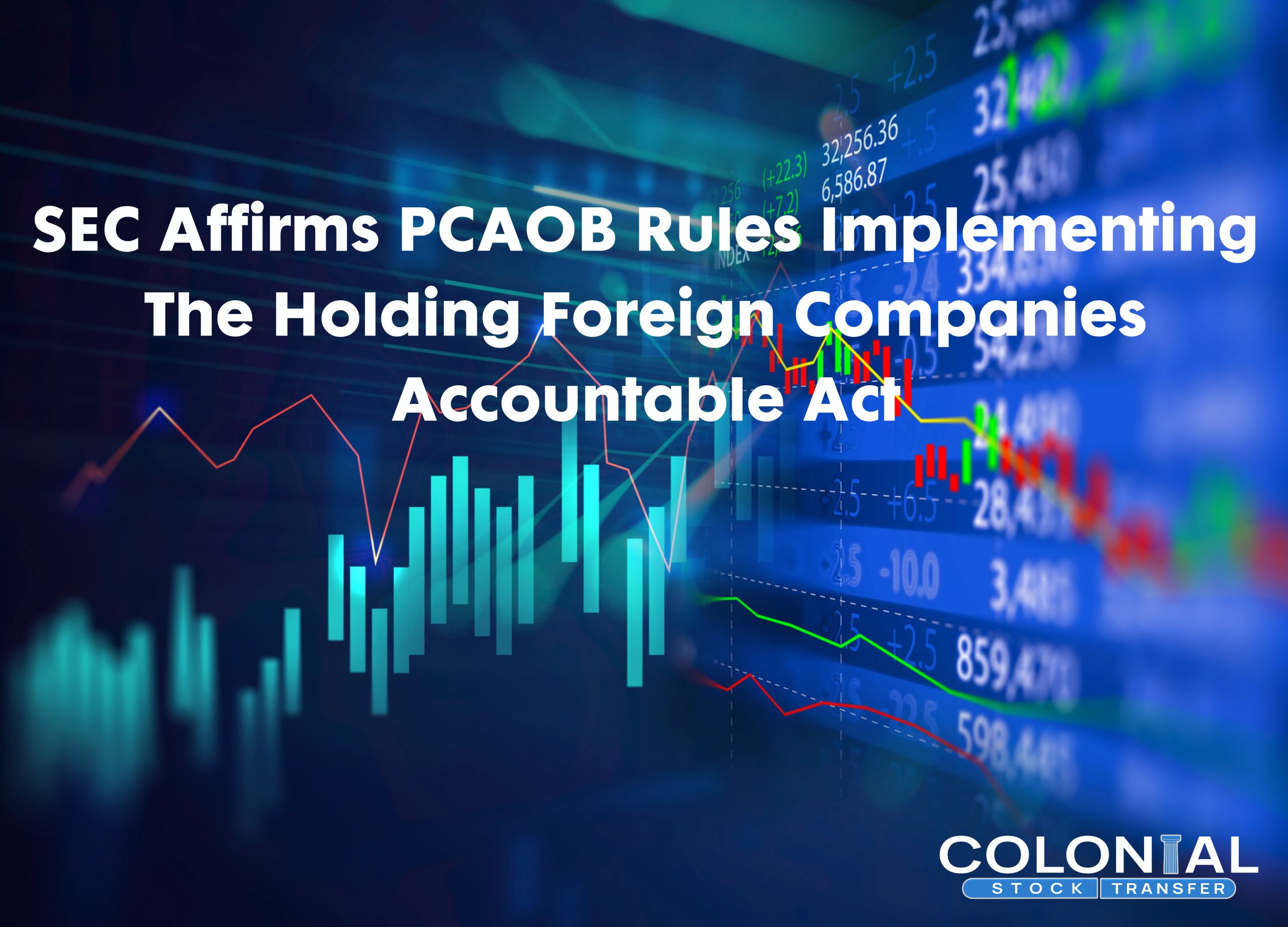
Early in November, the Securities and Exchange Commission (SEC) instituted a new rule titled PCAOB Rule 6100, which is under the Holding Foreign Companies Accountable Act, usually shortened to HFCA. Rule 6100 is a key development because it acts as a system for the PCAOB’s determination in the event that it cannot investigate or inspect registered public accounting firms that are based in overseas or international areas. The HFCA went into effect in December of 2020, and the act requires foreign-owned issuers to certify that the PCAOB can audit certain reports and inspect the issuer’s audit firm during the prior three years. If the PCAOB cannot investigate the auditing firm for three consecutive years, then the company cannot trade its securities on the national exchange.
In accordance with the Sarbanes-Oxley Act passed in 2002, the PCAOB has to inspect registered public accounting firms in foreign jurisdictions as well as the United States to investigate all potential violations of professional standards. SEC rules require that identified companies submit specific documents to the SEC by a specific due date. The SEC wants to ensure that companies are not owned by a government entity in that jurisdiction nor are they influenced by the government.
In these documents, commissioned issuers need to:
- Identify the accounting firm that prepared the report
- The percentage of shares owned by the government
- Whether the government has a controlling influence on the company
- Whether any board members are members of the Chinese Communist Party
- Whether the articles of incorporation contain elements of the charter of the Chinese Communist Party
While there has been some confusion regarding the implementation of these standards, rule 6100 attempts to clear this up.
The Implementation of Rule 6100
The SOX Act of 2002 requires that the PCAOB investigate public accounting firms in the United States and foreign jurisdictions if there is any suspected rules violation. In some cases, this places the PCAOB in direct confrontation with local laws, placing certain people in a difficult position. Therefore, the PCAOB has worked closely with international agencies and partners to try to make alternative arrangements that make it easier for the PCAOB to do its job without violating any local laws.
Essentially, arrangements made with foreign services should still permit the PCAOB to do its job by:
- Carrying out investigations and inspections that are specified by the SOX Act
- Picking the potential violations that need to be examined in-depth
- Being given access to information, audit papers, and personnel that could be relevant to the PCAOB’s investigation
Even though a lot of companies have cooperated with rule 6100, this is not the case for all companies. As a result, the PCAOB has created a specific list of areas where the PCAOB cannot do its job because foreign entities have denied the PCAOB access. Typically, the PCAOB can conduct its investigations as needed in areas other than Hong Kong and China, and Congress decided to implement the HFCA to force the PCAOB to figure out where it cannot fully investigate public accounting firms in foreign locations.
Now, rule 6100 of the PCAOB creates a process for the necessary determinations under HFCA. There are a lot of factors that play a role in the determinations including issues related to registered firms in foreign jurisdictions, board determinations, the timing of these determinations, and the basis of them. In addition, these determinations might need to be reassessed in the future. This rule is important because it could have implications related to the ability of a foreign company to issue its securities on the national stock exchange, which plays a role in the ability of the company to raise capital and impacts trade across international borders.



